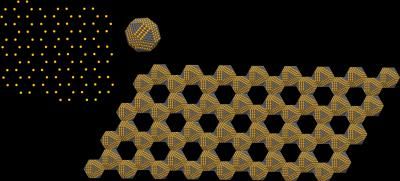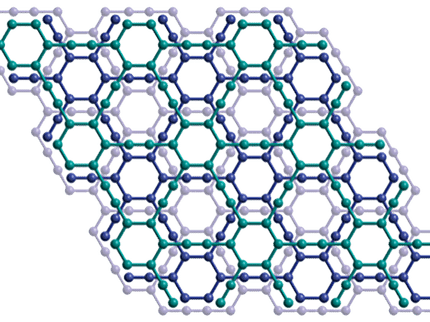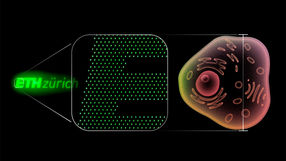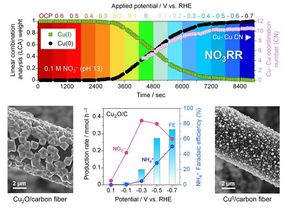A potentially revolutionary material
Global recognition for a novel form of artificial graphene
Advertisement
A new breed of ultra thin super-material has the potential to cause a technological revolution. "Artificial graphene" should lead to faster, smaller and lighter electronic and optical devices of all kinds, including higher performance photovoltaic cells, lasers or LED lighting.

Self-assembled semi-conducting nano-crystals with a honeycomb structure are emerging as a new class of systems with great potential.
(c) Physics and Materials Science Research Unit 2014
For the first time, scientists are able to produce and have analysed artificial graphene from traditional semiconductor materials. Such is the scientific importance of this breakthrough these findings were published recently in one of the world's leading physics journals, Physical Review X. A researcher from the University of Luxembourg played an important role in this highly innovative work.
Graphene (derived from graphite) is a one atom thick honeycomb lattice of carbon atoms. This strong, flexible, conducting and transparent material has huge scientific and technological potential. Only discovered in 2004, there is a major global push to understand its potential uses. Artificial graphene has the same honeycomb structure, but in this case, instead of carbon atoms, nanometer-thick semiconductor crystals are used. Changing the size, shape and chemical nature of the nano-crystals, makes it possible to tailor the material to each specific task.
The University of Luxembourg is heavily involved in cross-border, multidisciplinary research projects. In this case it partnered with the Institute for Electronics, Microelectronics, and Nanotechnology (IEMN) in Lille, France, the Debye Institute for Nanomaterials Science and the Institute for Theoretical Physics of the University of Utrecht, Netherlands and the Max Planck Institute for the Physics of Complex Systems in Dresden, Germany.
University of Luxembourg researcher Dr. Efterpi Kalesaki is the first author of the article appearing in the Physical Review X. Dr. Kalesaki said: "these self-assembled semi-conducting nano-crystals with a honeycomb structure are emerging as a new class of systems with great potential." Prof Ludger Wirtz, head of the Theoretical Solid-State Physics group at the University of Luxembourg, added: "artificial graphene opens the door to a wide variety of materials with variable nano-geometry and 'tunable' properties."
Other news from the department science

Get the chemical industry in your inbox
By submitting this form you agree that LUMITOS AG will send you the newsletter(s) selected above by email. Your data will not be passed on to third parties. Your data will be stored and processed in accordance with our data protection regulations. LUMITOS may contact you by email for the purpose of advertising or market and opinion surveys. You can revoke your consent at any time without giving reasons to LUMITOS AG, Ernst-Augustin-Str. 2, 12489 Berlin, Germany or by e-mail at revoke@lumitos.com with effect for the future. In addition, each email contains a link to unsubscribe from the corresponding newsletter.


























































